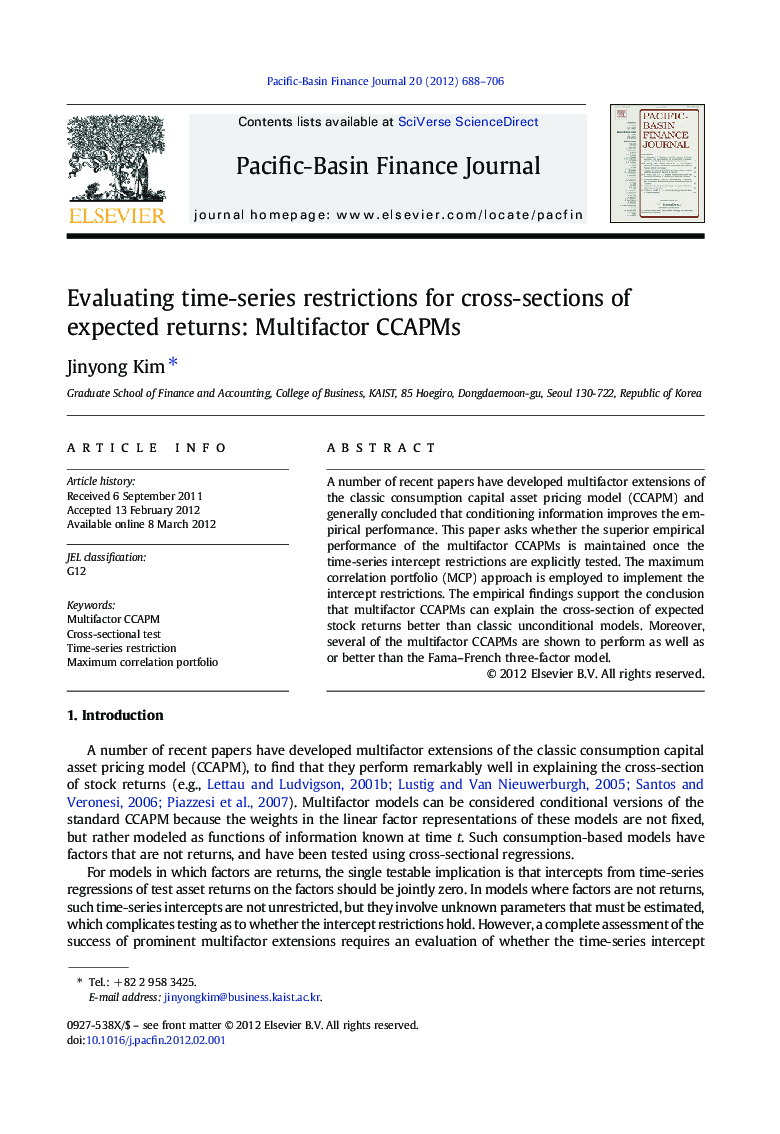| Article ID | Journal | Published Year | Pages | File Type |
|---|---|---|---|---|
| 973105 | Pacific-Basin Finance Journal | 2012 | 19 Pages |
A number of recent papers have developed multifactor extensions of the classic consumption capital asset pricing model (CCAPM) and generally concluded that conditioning information improves the empirical performance. This paper asks whether the superior empirical performance of the multifactor CCAPMs is maintained once the time-series intercept restrictions are explicitly tested. The maximum correlation portfolio (MCP) approach is employed to implement the intercept restrictions. The empirical findings support the conclusion that multifactor CCAPMs can explain the cross-section of expected stock returns better than classic unconditional models. Moreover, several of the multifactor CCAPMs are shown to perform as well as or better than the Fama–French three-factor model.
► We test multifactor CCAPMs by imposing time-series intercept restrictions. ► Maximum correlation portfolios (MCP) are used to implement the intercept restrictions. ► A condition for the weighting matrix of test statistics to have full rank is proposed. ► Multifactor CCAPMs show better cross-sectional performance than unconditional models. ► Several multifactor CCAPMs perform as well as or better than the Fama–French model.
